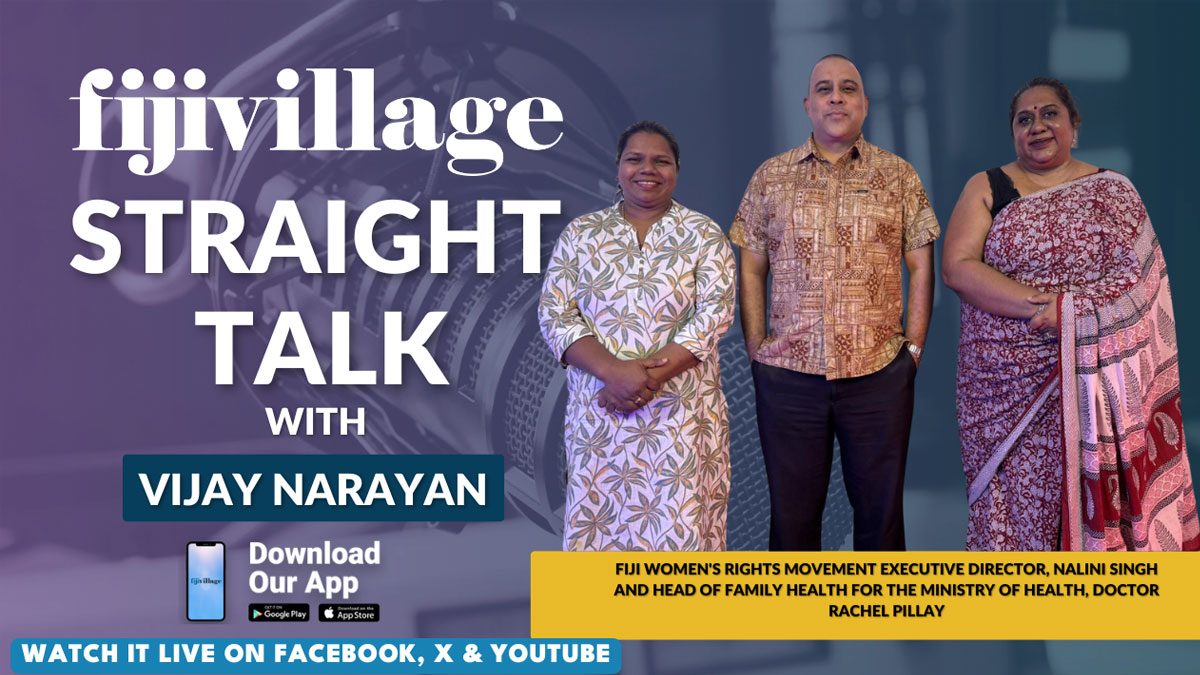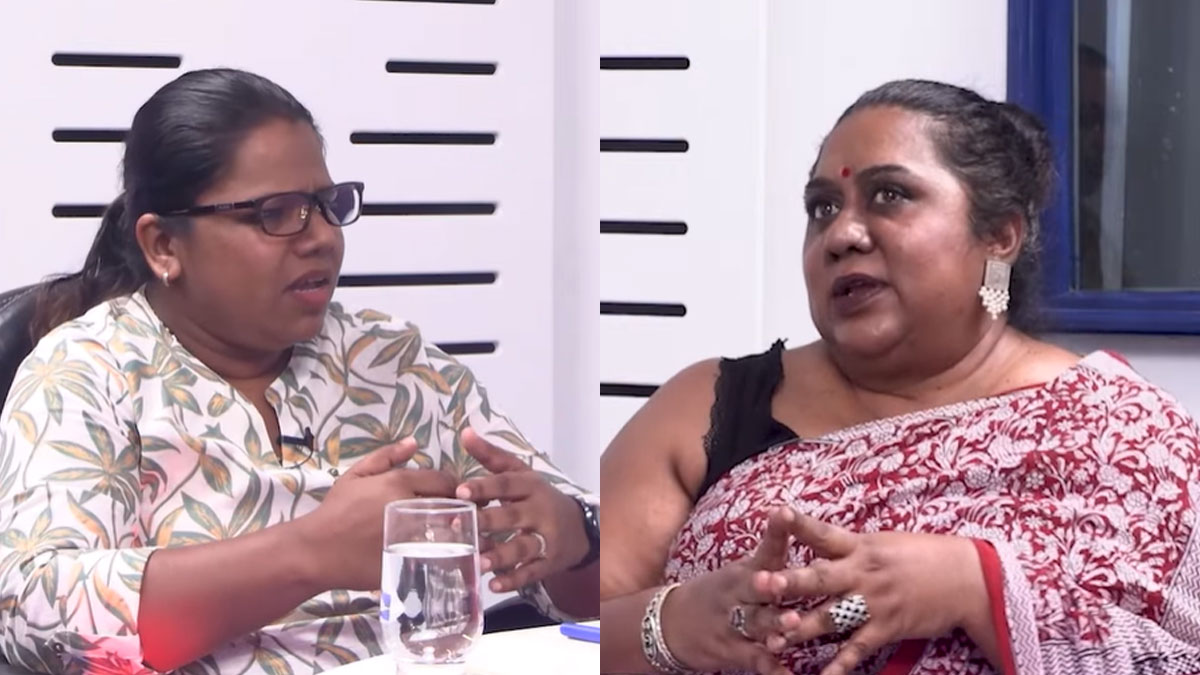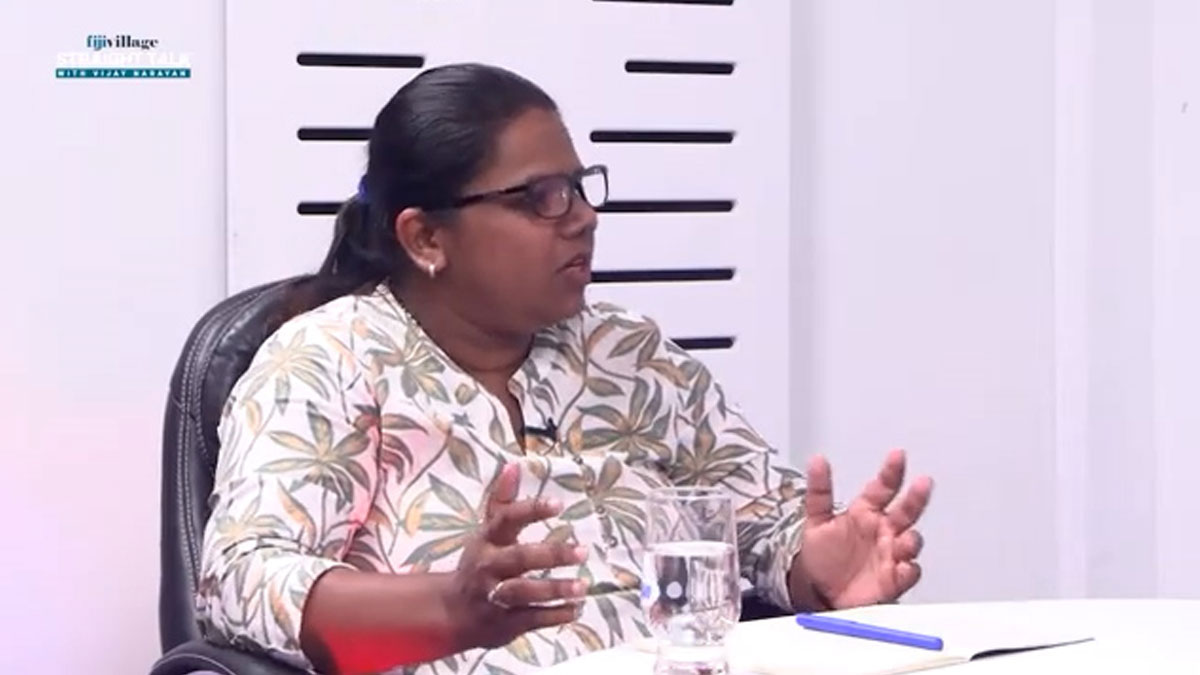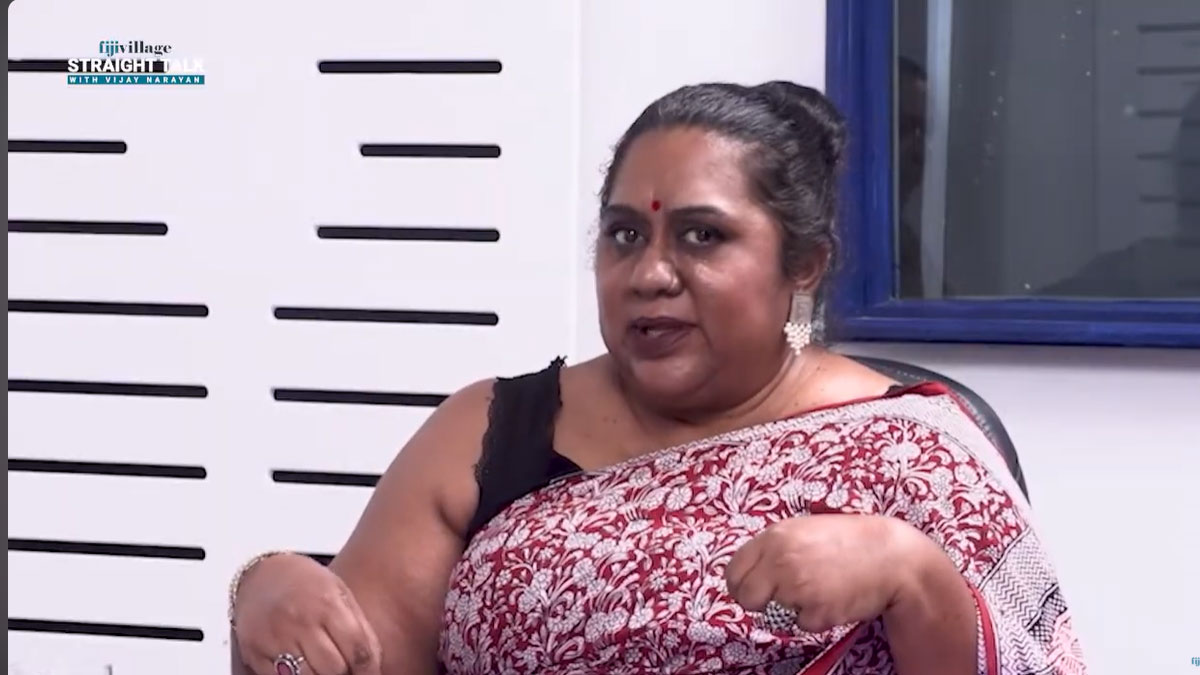
Fiji Women's Rights Movement Executive Director, Nalini Singh and Head of Family Health for the Ministry of Health, Doctor Rachel Pillay appeared on fijivillage Straight Talk With Vijay Narayan.
The show focuses on the silent culture regarding menopause and how many women suffer in silence without much medical support, help and counseling in the country.

A call is being made to break the silence on menopause as there is very little understanding of what menopause is, resulting in many women suffering in silence.
This has been highlighted on fijivillage Straight Talk with Vijay Narayan where Head of Family Health at the Ministry of Health, Doctor Rachel Pillay and Fiji Women’s Rights Movement Executive Director Nalini Singh talked about lack of knowledge, the symptoms, the health consequences and their experiences with menopause.
Dr Pillay says menopause is a normal process that every woman may go through where her menstruational cycles basically stop and it varies within age.
Peri-menopause usually starts when women are in their mid 40s.
The hormone levels change during menopause - most significantly oestrogen, which controls the menstrual cycle and contributes to a number of other bodily processes.
A BBC Health Report states that as women age, the ovaries produce fewer eggs, oestrogen levels fluctuate and then gradually reduce, and this leads to menopausal symptoms.
Singh says there is a very little understanding of what menopause is and most women suffer in silence because in our society, we do not talk about reproductive and sexual health.
She says women do not talk about it as menstruation and menopause, as part of the life cycle, is considered dirty and impure, and something that should not be talked about even though the first menstruation is celebrated in many of our communities.
Singh says they are trying to break the silence through the FWRM report titled The ‘M’ Word: Ending The Silence – Fijian Women’s Perceptions and Experiences Journey To and During Menopause.
While sharing his own experience, Narayan says his wife has been going through peri-menopause for a few years, and during the first phase, she faced some issues where she thought she was having a miscarriage.
He says his wife thought she was dying at one stage and the scary part was that when she went to the medical professionals, not much help was provided.
Watch on TikTok
Narayan highlighted a new book by Mary Claire Haver titled ‘A New Menopause’, which outlines at least 66 symptoms associated with menopause, including anxiety, arthritis, asthma, bloating, body odour, brain fog, brittle nails, chronic fatigue syndrome, crawling skin sensations, decreased libido, dental issues, depression, difficulty concentrating, dizzy spells, dry eyes, dry mouth, dry skin, frozen shoulder, headaches, heart palpitations, high cholesterol and hot flashes, kidney stones, memory issues, mental health disorders, migraines, muscle aches, non-alcoholic fatty liver disease, sleep disturbances, thinning hair and skin, unwanted hair growth, weight gain and more.
While responding to a question on the several symptoms also highlighted in the FWRM report and many women not knowing what was happening to them, Singh shared her own experience with menopause, saying that more than half of the symptoms listed in the book apply to her, as she is going through induced menopause after experiencing severe peri-menopause.
She says at the time, she did not know that prolonged heavy bleeding could lead to severe anaemia, and if not managed, it could cause other complications such as infections.
The Executive Director says we look at individual issues such aching bones, thinning hair, vision problems or watery eyes like her and get treated for that but it is not looked at in a holistic way.
Singh says when we do not present everything in that connected way, then there is no way for the medical profession to get to the bottom of what is happening.
The Executive Director says if family members, men included, are aware of what could be happening, then they could be helping get the woman to seek the right type of help rather than calling her sick.
She is encouraging more women to talk about this, even among their peers, and to seek help from professional service providers.
The FWRM Executive Director says the conversation around menstruation and menopause must start at home and be normalised within families.
Singh adds that it is important for this to also be part of the family life curriculum in schools.
Dr Rachel Pillay says the Health Ministry is definitely developing the space around menopause further, and people can be rest assured that work is being done behind the scenes.
She says the recent endorsement of a Maternal and Child Health Policy includes a focus on menopause and the broader context of women’s health.
Dr Pillay says they want to ensure that when women take their children for immunisation, the opportunity is not lost to offer additional services for the woman and the whole family, including men.

The Ministry of Health will be developing guidelines and training materials for healthcare workers to improve their understanding and response to menopause in women.
This has been highlighted by Head of Family Health at the Ministry of Health, Doctor Rachel Pillay during a discussion on menopause on the fijivillage Straight Talk With Vijay Narayan.
Dr Pillay says if healthcare workers do not recognise the symptoms of menopause holistically, they will not respond appropriately, but rather only treat individuals for the symptoms they present with—such as anaemia.
She says capacity building for every individual healthcare worker is important, and once this is done, there is a need to ramp up efforts and break the silence further.
Dr. Pillay says we need to educate our population and strengthen this space, and honestly move forward with the response to addressing this aspect of wellness for women.
She has stressed the importance of breaking the silence so that women can get the help they need.
You can watch the full show on our website, fijivillage or catch the podcast, fijivillage Straight Talk with Vijay Narayan on Spotify and Apple Podcast.

Women going through menopause, at the prime of their employment, have left their jobs abruptly because they cannot cope with their work and their employers do not understand what is happening, and these women, only realising later what they were experiencing due to the lack of support services and general understanding, often remain silent because they do not verbalise what is happening to them.
This has been highlighted by Fiji Women's Rights Movement Executive Director Nalini Singh on fijivillage Straight Talk with Vijay Narayan while talking about her experience with menopause.
Singh says she has induced menopause because her perimenopause was very severe and while she was going through it, she thought it was part of the process and it should be fine after a while but she did not know that prolonged heavy bleeding could mean severe anaemia and other related complications such as infection.
Singh says the symptoms of menopause are not being looked at a holistic way where symptoms such as aching bones, thinning hair and vision problems are looked at individually.
She says when we are educated about the kind of symptoms women could go through at a particular age period, then we have the power ourselves to speak up about it.
Singh says it is not menopause that kills you but the interlinked issues.
Singh further says if family members, men included, are aware of what could be happening, then they could be helping the woman seek the right type of help rather than call her "sick" and say she is resting.
Singh stresses that she is not sick but she needs to have the right hormones working in her body again, so that she has the energy and the ability to carry on with whatever she wants to do.
While highlighting women's health seeking behaviour, the Executive Director says women will take traditional herbal medicine and go to prayer meetings while significantly suffering from reproductive health issues, including symptoms or manifestations of menopause and peri-menopause.
Singh says it can lead to very dire consequences and health implications.
She is encouraging more women to talk about menopause, even in their peers, and then seek out the help that they could be getting from the professional service providers.
You can watch the full show on our website, fijivillage or catch the podcast, fijivillage Straight Talk with Vijay Narayan on Spotify and Apple Podcast.
Please also share this widely to help break the silence about menopause.
Stay tuned for the latest news on our radio stations

